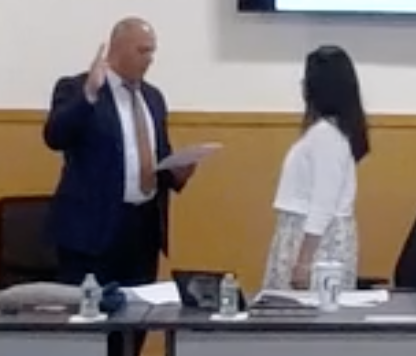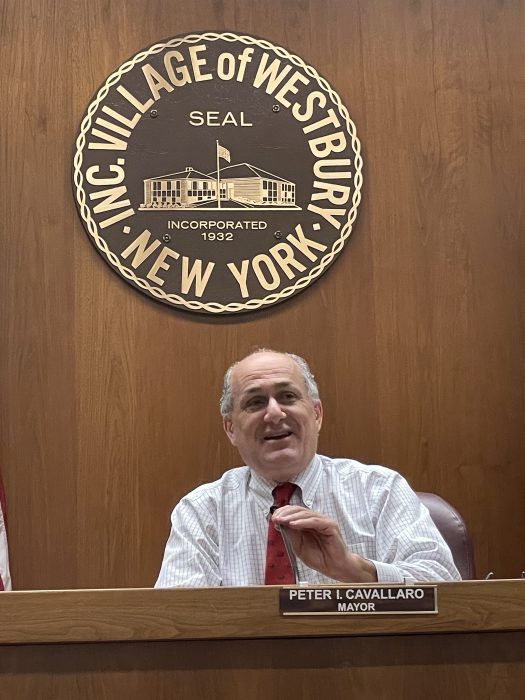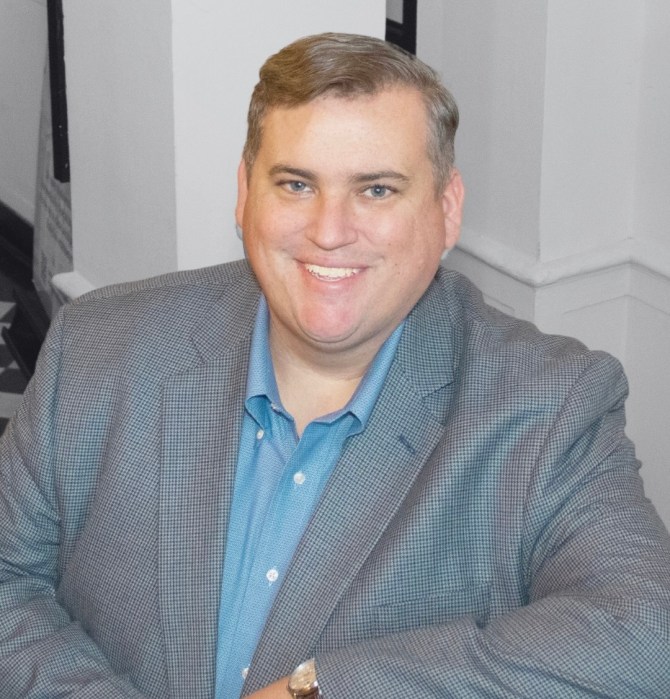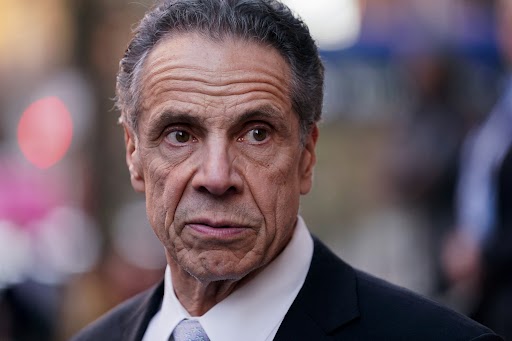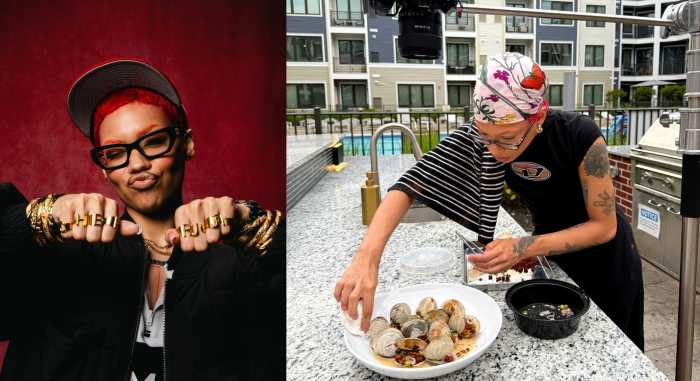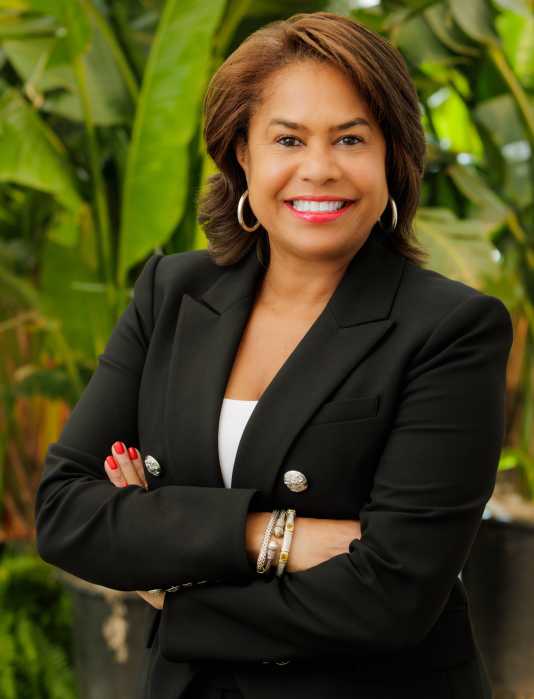Westbury property manager promotes breast health education
If you met Jodee Sarisky today, you would never guess that she was once a woman fighting for her life. The East Northport single-mom is nothing but smiles as she works a full-time job, raises three children and fundraises for a foundation near and dear to her heart.
Sarisky’s story began in 1999 when she started working as a property manager for Kaled Management Corp. in Westbury. Just months after beginning her job, the then 29-year-old was given life-changing news.
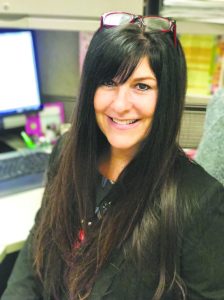
“I had really big breasts and it was really bumpy. There were a lot of lumps and a lot of them are glands and a lot of them are benign, but this one on the left side was bigger and it hurt,” she said.
For years, she was told she simply had dense breasts, but when chronic soreness plagued her left breast, Sarisky knew something was amiss.
“I was diagnosed with bi-lateral breast cancer,” Sarisky said. “For about two years I had radiation, surgery and reconstruction.”
Through her diagnosis and recovery, Sarisky continued to manage nearly 10 properties while her company supported her along her journey to good health.
However, even after having the cancer removed, Sarisky’s life continued to change in rapid succession when she tested positive for a type of gene mutation that would increase her chances of developing ovarian cancer.
“Within a few months of [recovering from the cancer], they found out that I was BRCA2 positive,” she said. “They said that if I was going to have kids, I better do it now.”
With this information, Sarisky married the man she was seeing at the time, and they tried for children. She wound up conceiving triplets through in vitro—two girls and a boy—and gave birth in 2003.
“Unfortunately, I got married very quickly with the diagnosis and [my husband and I] didn’t make it through. It was all just cancer, kids, triplets,” Sarisky explained.
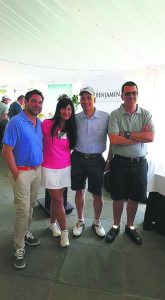
She joked that doctors kept pulling organs out of her as she described how later, in 2009, she went on to have a hysterectomy, and underwent gallbladder removal in 2014.
Despite all of the trials and tribulations she’s been through, Sarisky remained a positive force to be reckoned with.
“I never let it beat me,” she said. “I knew I was going to make it through, and I knew I was going to survive. It made me more of a fighter.”
Outside of her job, Sarisky has been volunteering since last year with the Maurer Foundation, an organization founded by her breast cancer surgeon, Dr. Virginia Maurer. The group’s goal isn’t to find a cure, but rather to educate females both young and old about the importance of breast health. “Through breast health education that focuses on breast cancer prevention, healthy lifestyle choices, early detection and risk reduction,” the foundation has been enlightening women since 1995.
Sarisky’s role with the foundation is mainly fundraising. Through her property management work, she has a unique advantage in her ability to collect donations and have people be involved with special events.
“I go to all my companies, vendors and contractors and I publicize,” she said. “I go around to anyone I know, any business that I’m in, any place that I go. I say, ‘This is a foundation about breast health if you’re interested.’”
After being involved in the foundation’s Golf Classic in May, Sarisky continued advocating and helped the nonprofit group raise more than $10,000 through their fourth annual Motorcycle Ride this past August.
“I get in touch with everybody, I tell everybody about it and then they join. So many of my clients, contractors and vendors donate. I’m always talking about it,” she said. “The more money [the foundation] makes, the more that they are able to purchase the stuff to go out to the schools, so I just keep pushing it.”
Sarisky said she owes her involvement with the foundation to the concern she has for her own two daughters, who tend to be shy and embarrassed when it comes to discussing breasts.
“Me having two 14-year-old daughters, I was like, ‘Of course this is what I’m going to do,’” she said. “I got involved because the younger girls need to know [breast cancer] is there when you’re young. Especially if you have the gene stuff. You could take it out and it won’t be as traumatic as when you’re in your 30s and 40s when it could be somewhere else.”
Early detection and open communication, Sarisky said, is life-saving. She uses her own story to empower her daughters to be strong and unafraid of what their future may have in store for them.
“With me having the BRCA gene, it’s sad because [my daughters] have a 50 percent chance of getting cancer; it’s just not okay,” she said. “I take away the fear of it and I show them the strength. You stay positive, you stay strong and you tell them you’ll survive. It’s a body part, you’re going to miss it, it’s going to hurt, but that’s not your whole life. Your whole life is what you’re going to be, not what your boob looks like.”
With the technology that’s now in place to monitor your health, she emphasized the importance of speaking up so you can receive the best prognosis.
“It’s so important to let the young people know if you catch it early, you don’t have to let it metastasize,” Sarisky said. “Whoever you’re most comfortable with, take a deep breath and ask them a question. Speak to your mom, your sister, your aunt, someone who’s older, and just have the courage to fight for yourself. Fight for your life because nobody can do it for you. Love yourself and don’t be embarrassed, it’s a body part.”





